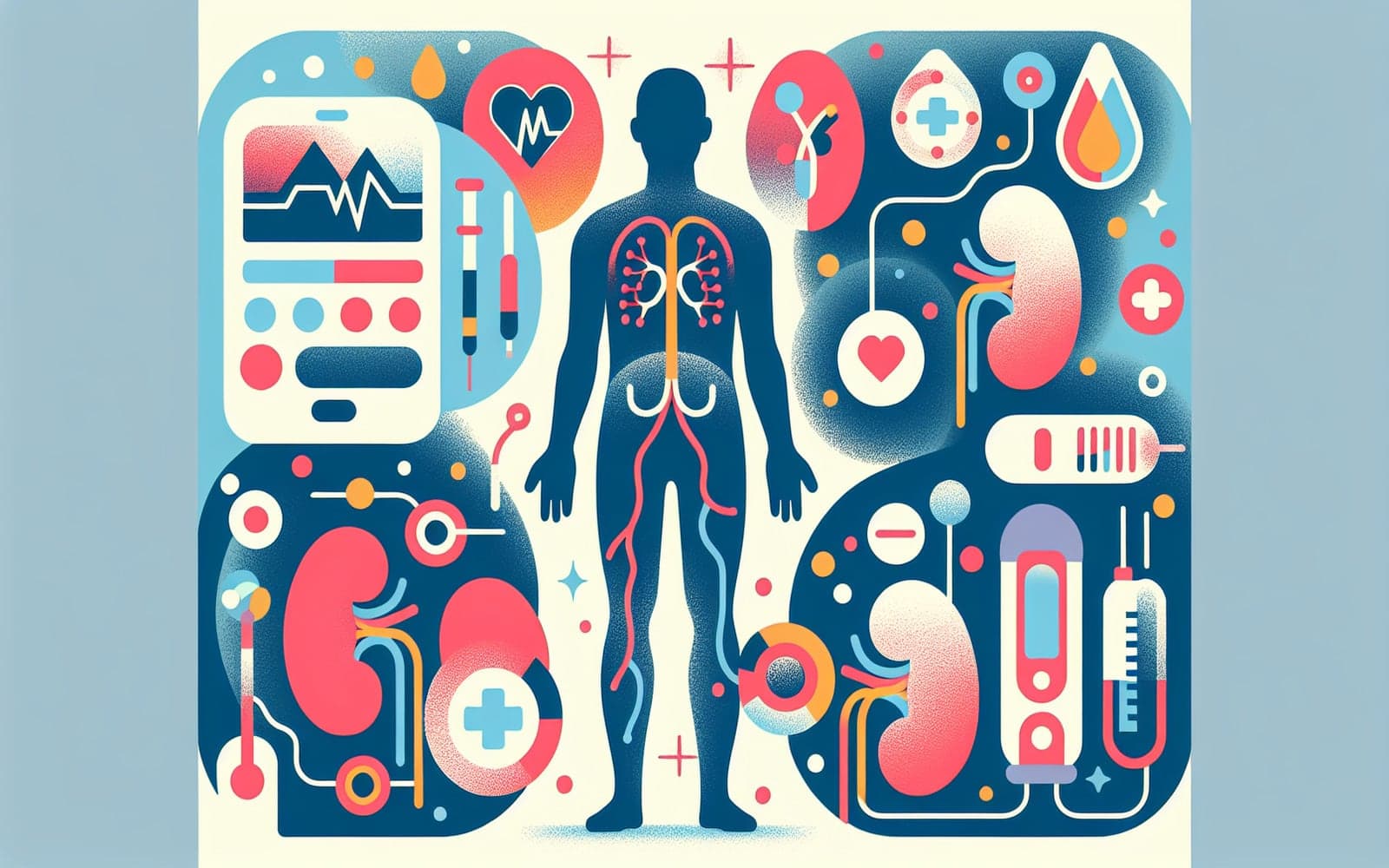Are You at Risk for Diabetic Kidney Disease?
Published: Jun 24, 2024

Medically reviewed by Alan Lucks | MD, Alan Lucks MDPC Private Practice - New York on June 24th, 2024.
Diabetic kidney disease can lead to serious health issues, but knowing your risk factors can help you stay ahead of the game. Let's explore what increases your risk and how to manage it.
Contents
Understanding Risk Factors
Having diabetes is the primary risk factor for developing kidney disease. However, other factors can increase this risk, such as high blood pressure, poor blood sugar control, and a history of diabetic retinopathy. The longer you have diabetes, the higher your risk of developing kidney issues.
Role of Glycemic Control
Keeping blood sugar levels in check is crucial in reducing the risk of diabetic kidney disease. Poor glycemic control can accelerate kidney damage. Studies show that maintaining a healthy blood sugar level significantly lowers the chances of kidney complications.

Hypertension and Kidney Disease
Hypertension, or high blood pressure, often accompanies diabetes and can worsen the progression of kidney disease. Managing blood pressure through medications and lifestyle changes is critical in slowing down kidney damage.
Frequently Asked Questions
High blood pressure, poor blood sugar control, and long-term diabetes increase the risk.
Good control of blood sugar levels can slow down or prevent kidney damage.
Yes, high blood pressure can accelerate kidney damage in diabetic patients.
Yes, the longer you have diabetes, the greater your risk of kidney disease.
Key Takeaways
Understanding and managing your risk factors can help protect your kidneys if you have diabetes.
Get started: Discuss your risk factors with Doctronic to safeguard your kidney health.Related Articles
References
Navaneethan SD, Zoungas S, Caramori ML, et al. Diabetes Management in Chronic Kidney Disease: Synopsis of the 2020 KDIGO Clinical Practice Guideline. Ann Intern Med 2021; 174:385.
Nelson RG, Knowler WC, Pettitt DJ, et al. Assessment of risk of overt nephropathy in diabetic patients from albumin excretion in untimed urine specimens. Arch Intern Med 1991; 151:1761.
This article has been reviewed for accuracy by one of the licensed medical doctors working for Doctronic. Always discuss health information with your healthcare provider.

